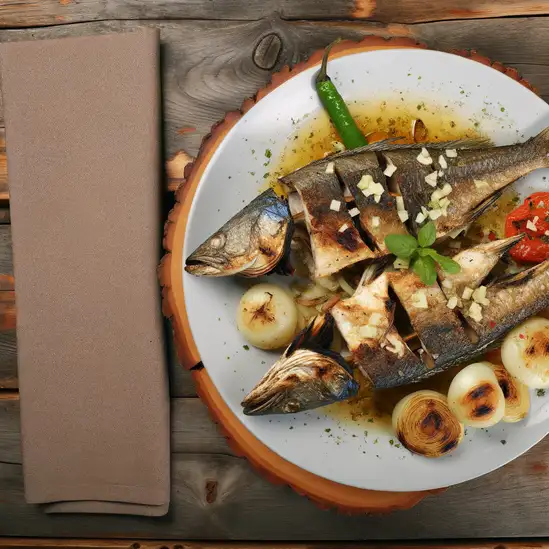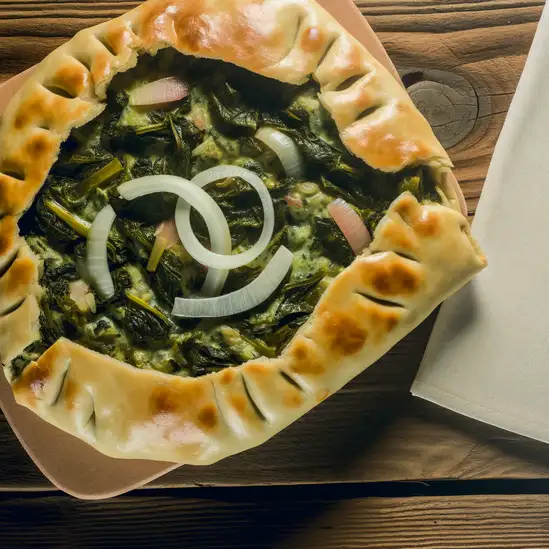



If you ever find yourself dreaming of a place where the sea feels like a warm embrace and the air carries the scent of pine and salt,Murter-Kornati in Croatia is where you need to be. This isn’t just a spot on the map; it’s a rhythm of life that slows down just enough for you to catch your breath. Picture waking up to the gentle lapping of turquoise waves against ancient stone walls,the sun casting golden hues over terracotta rooftops. The town hums softly with the chatter of locals and the clinking of glasses in cozy seaside taverns. Walking through Murter’s narrow streets,you’ll notice the blend of old-world charm and vibrant maritime culture. Fishermen mend their nets by the harbor,while the aroma of freshly grilled seafood drifts from open kitchens,tempting you to savor every bite of octopus or black risotto. The nearby Kornati archipelago feels like stepping into a painter’s canvas—jagged limestone islands rising dramatically from the sea,their silence broken only by the call of seabirds and the splash of a kayak slicing through crystal-clear waters. What makes Murter-Kornati truly special is how it invites you to slow down and soak in the simple pleasures:the warmth of the sun on your skin,the taste of local olive oil drizzled over ripe tomatoes,the laughter shared over a glass of homemade wine. It’s a place where nature and tradition dance together,leaving you with a sense of peace and a heart full of stories to tell.
The information on this page is currently being reviewed by Tripkliq and should be used as a guide only
Eng word: Hello
Eng pronunciation: Bohk
Local language: Bok
Eng word: Goodbye
Eng pronunciation: Doh-vee-jen-ya
Local language: Doviđenja
Eng word: Thank you
Eng pronunciation: Hvah-lah
Local language: Hvala
Eng word: How much
Eng pronunciation: Koh-lee-koh
Local language: Koliko
Eng word: Toilet
Eng pronunciation: Toh-ah-let
Local language: Toalet
Eng word: Help me
Eng pronunciation: Poh-moh-zee mee
Local language: Pomozi mi
Eng word: Yes
Eng pronunciation: Dah
Local language: Da
Eng word: No
Eng pronunciation: Neh
Local language: Ne
Eng word: Excuse me
Eng pronunciation: Oh-proh-stee-teh
Local language: Oprostite
Murter-Kornati has a rich history dating back to ancient times, with evidence of human settlement from the Roman era. Archaeological sites such as Colentum, an ancient Roman city, offer a glimpse into the past.
During the medieval period, Murter was part of the Croatian Kingdom and later the Republic of Venice. The island's strategic location made it an important maritime hub.
Built in the 17th century, the Church of St. Michael is one of the most significant historical landmarks in Murter. It showcases beautiful Baroque architecture and offers stunning views of the surrounding area.
Murter is renowned for its traditional wooden shipbuilding. The island's craftsmen have been building 'gajeta' and 'leut' boats for centuries, preserving this unique maritime heritage.
Established in 1980, Kornati National Park encompasses 89 islands, islets, and reefs. The park is a testament to the region's natural beauty and historical significance, with numerous archaeological sites scattered across the islands.
Opened in 2015, this museum in the village of Betina celebrates the island's shipbuilding tradition. It offers interactive exhibits and showcases the craftsmanship of local boat builders.
Olive cultivation has been a part of Murter's history for centuries. The island's olive groves produce high-quality olive oil, a staple of the local diet and an important part of the cultural heritage.
Murter hosts several traditional sailing regattas, such as the 'Latinsko Idro' (Latin Sail) regatta. These events celebrate the island's maritime history and attract sailing enthusiasts from around the world.
Murter is home to various cultural festivals that highlight its rich history and traditions. Events like the 'Murter Summer Festival' feature music, dance, and local cuisine, offering a vibrant cultural experience.
In Murter-Kornati, the most common Power Adaptor is Type C, Type F.



A traditional omelette made with seasonal vegetables, herbs, and sometimes seafood, reflecting the local flavors of the region.

A method of cooking where meat (usually lamb or octopus) and vegetables are placed under a bell-like lid and cooked slowly over an open fire, resulting in tender and flavorful dishes.

Grilled fish, often prepared with local catch such as sea bass or sardines, seasoned with olive oil, garlic, and herbs, served with a side of vegetables.

A savory pie filled with Swiss chard and onions, encased in thin layers of dough, typically baked in a wood-fired oven.

A traditional Dalmatian dish made of marinated beef, slow-cooked in a rich sauce of red wine, prunes, and spices, often served with gnocchi.

A fish stew made with various types of fish, tomatoes, and spices, typically served with polenta.

A cheese pie made with fresh cheese, eggs, and a hint of lemon, often enjoyed as a dessert or snack.
If you ever find yourself wandering through Split,it’s like stepping into a living,breathing storybook where ancient history and vibrant modern life dance together effortlessly. The moment you stroll along the Riva promenade,the salty breeze from the Adriatic mingles with the aroma of fresh espresso and grilled seafood wafting from nearby cafés. Locals chat animatedly in the sun-dappled squares,their laughter blending with the distant hum of boats bobbing gently in the harbor. There’s a laid-back energy here that feels both timeless and alive,inviting you to slow down and soak it all in.
Split’s heart beats strongest in Diocletian’s Palace,a sprawling Roman fortress that’s less a museum and more a neighborhood where people live,shop,and gather. Walking through its ancient stone alleys,you’ll catch glimpses of colorful markets,artisan shops,and cozy taverns tucked into centuries-old walls. At night,the city transforms as lanterns flicker on,and the sound of live klapa singing—traditional a cappella harmonies—drifts through the air,wrapping you in a warm,soulful embrace.
What really makes Split unforgettable is how effortlessly it blends the old with the new. You can savor a plate of fresh octopus salad while watching fishermen haul in their catch,then wander to a rooftop bar for a cocktail as the sun sets behind the islands. It’s a place where every corner tells a story,every meal feels like a celebration,and every moment invites you to become part of its ongoing tale.
If you ever find yourself wandering through the sun-drenched streets of Dubrovnik,you’ll immediately feel like you’ve stepped into a living storybook. The city’s ancient stone walls rise proudly against the sparkling Adriatic,and as you stroll along the marble-paved Stradun,the salty sea breeze mingles with the scent of fresh pine and blooming bougainvillea. There’s a rhythm here—a gentle hum of life where history and modern charm dance together effortlessly.
Dubrovnik’s character is woven into every corner:the clatter of café cups,the murmur of locals chatting in cozy taverns,and the distant call of seagulls overhead. You can almost taste the city in the air—briny and fresh,with hints of grilled seafood and ripe figs from the markets. Sitting at a seaside restaurant,watching the sun dip behind the fortress walls,you’ll savor dishes bursting with Mediterranean flavors,paired with a glass of crisp Croatian white wine.
What makes Dubrovnik truly special is how it balances its rich past with a vibrant present. The city’s narrow alleys invite exploration,revealing tucked-away galleries,artisan shops,and lively squares where music spills out into the streets. Whether you’re tracing the footsteps of ancient mariners or simply soaking up the golden light on a quiet terrace,Dubrovnik feels like a warm embrace—inviting,timeless,and utterly unforgettable.
If you ever find yourself wandering the Dalmatian coast,Zadar is one of those places that sneaks up on you with its quiet charm and unexpected magic. The moment you step onto its ancient stone streets,there’s this warm,timeless feeling—like the city is gently humming a tune just for you. The salty breeze from the Adriatic mingles with the scent of fresh pine and blooming jasmine,wrapping around you as you stroll along the waterfront. It’s a place where history isn’t just in museums; it’s alive in the crumbling Roman ruins,the medieval churches,and the lively squares where locals gather to chat and sip coffee.
What really sets Zadar apart is its playful spirit. You’ll hear it in the waves as they dance through the Sea Organ,an extraordinary installation that turns the sea’s movement into haunting melodies. And just a few steps away,the Sun Salutation lights up the night with a mesmerizing display of colors,making the waterfront feel like a celebration of nature and art. Grab a seat on the stone benches,watch the sun dip below the horizon,and you’ll understand why Alfred Hitchcock once called Zadar the most beautiful sunset in the world.
The city’s vibe is relaxed but vibrant,with cozy konobas serving up fresh seafood and local wines that taste like the essence of the region. Whether you’re wandering through the bustling market,exploring narrow alleys,or simply soaking in the views from a café terrace,Zadar invites you to slow down,breathe deeply,and savor every moment.
If you wander into Šibenik,you’ll immediately feel like you’ve stepped into a place where history and the sea have been quietly chatting for centuries. The city’s old stone streets,worn smooth by footsteps over hundreds of years,invite you to slow down and soak in the atmosphere. There’s a gentle hum of life here—fishermen unloading their catch,the clinking of glasses from cozy waterfront cafés,and the distant call of seagulls mingling with the soft splash of waves against the harbor walls.
What makes Šibenik truly special is its blend of rugged Adriatic charm and rich cultural layers. The sun warms the limestone walls,making them glow golden in the late afternoon,while the scent of pine trees drifts in from the nearby hills. You can’t miss the stunning Cathedral of St. James,a masterpiece carved entirely from stone,where every detail tells a story. Wander through the narrow alleys,and you’ll find vibrant markets bursting with fresh figs,olives,and local cheeses that taste like sunshine.
Evenings in Šibenik have a relaxed,almost magical feel. The city lights flicker on,reflecting in the calm waters,and the air fills with the aroma of grilled seafood and herbs. Locals gather in lively taverns,sharing laughter and stories over glasses of crisp Croatian wine. It’s a place where time slows just enough for you to savor the simple pleasures—good food,warm smiles,and the endless blue horizon.
Imagine stepping into a sun-drenched town where lavender-scented breezes mingle with the salty kiss of the Adriatic Sea—that’s Hvar for you. From the moment you wander through its ancient stone streets,there’s a relaxed yet vibrant energy that wraps around you like a warm embrace. The sunlight bounces off terracotta rooftops,and the sound of laughter spills out from cozy cafés where locals sip espresso and chat animatedly. It’s a place where history and modern life dance effortlessly together.
As you stroll along the harbor,sleek yachts bob gently beside fishing boats,and the air carries the faint aroma of grilled seafood and fresh herbs. The town’s medieval walls and the imposing fortress overlooking the bay tell stories of centuries past,while the lively markets burst with ripe figs,olives,and sun-ripened tomatoes. At sunset,the sky blazes in shades of pink and gold,and the waterfront buzzes with music drifting from open-air bars,inviting you to linger just a little longer.
What makes Hvar truly special is its blend of authenticity and joie de vivre. It’s not just a place to see but a place to feel—whether you’re savoring a glass of local Plavac Mali wine,exploring hidden coves by boat,or simply watching the world go by from a shaded terrace. Hvar’s charm lies in its ability to make you slow down,breathe deeply,and soak in the simple pleasures of life by the sea.
Imagine stepping into a place where every narrow cobblestone street whispers stories from centuries past,and the salty breeze from the Adriatic Sea mingles with the scent of fresh pine and blooming bougainvillea. That’s Trogir for you—a charming,sun-drenched town that feels like a living museum but with a lively,warm heartbeat. As you wander through its maze of medieval alleys,you’ll catch glimpses of ancient stone buildings,ornate churches,and cozy cafés spilling out onto tiny squares where locals sip espresso and chat animatedly.
The vibe here is effortlessly relaxed yet rich with history and culture. You can hear the gentle lapping of waves against the harbor,the distant call of seagulls,and the soft murmur of conversations in Croatian,Italian,and English. At sunset,the golden light bathes the old town in a magical glow,making it the perfect time to savor a plate of fresh seafood—imagine tasting the briny sweetness of grilled fish paired with a crisp local white wine while watching fishing boats bob gently in the harbor.
What makes Trogir truly special is how it balances its deep-rooted heritage with a welcoming,unpretentious spirit. It’s not just a place to see but a place to feel—where history,nature,and everyday life blend seamlessly. Whether you’re exploring the fortress walls,browsing artisan shops,or simply sitting by the water with gelato in hand,Trogir invites you to slow down and soak in its timeless charm.
Tourists may be asked to pay deposits for non-existent or substandard accommodations advertised online.
Scammers sell fake tickets to the Kornati National Park, leaving tourists unable to enter the park upon arrival.
Shops may sell mass-produced items as 'authentic' local crafts, misleading tourists about their origin and value.
Tourists renting jet skis may be falsely accused of causing pre-existing damage and forced to pay hefty repair fees.
Tourists may be charged excessive prices for renting boats, especially if they don't compare rates or book through reputable companies.
Some restaurants may inflate bills by adding items not ordered or charging higher prices than those listed on the menu.
Unmetered or unofficial taxis may charge tourists exorbitant rates for short trips, especially during peak tourist seasons.
Unlicensed individuals may offer guided tours of the Kornati islands, providing poor service or incorrect information.
The possession, use, and distribution of illegal drugs are strictly prohibited in Murter-Kornati, Croatia. Penalties for drug-related offenses can be severe, including fines and imprisonment. Tourists should avoid any involvement with illegal substances to ensure a safe and lawful visit.
In Murter-Kornati, Croatia, smoking is generally allowed in designated smoking areas. However, smoking is prohibited in enclosed public spaces such as restaurants, bars, and public transportation. Some outdoor areas may also have restrictions, so it's important to look for no-smoking signs.
Vaping is subject to similar regulations as smoking in Murter-Kornati. It is prohibited in enclosed public spaces and may be restricted in certain outdoor areas. Always check for signs indicating whether vaping is allowed.
What are other people saying about Murter-Kornati?
Recent Social posts about Murter-Kornati
There is nothing to show you for now.